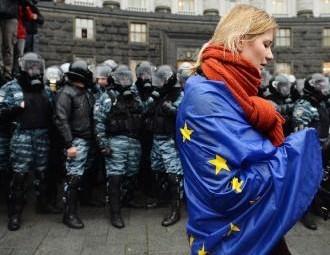EU will introduce sanctions against Ukrainian authorities
 photo by gazeta.ru
photo by gazeta.ru
Targeted sanctions against persons responsible for the outburst of violence and people’s deaths in Ukraine can be put in force starting from February 21.
This statement made Maya Kocijancic, spokesperson of High Representative of the Union for Foreign Affairs and Security Policy Catherine Ashton. According to her, the agreement about restrictive measures against Ukraine can be achieved at the meeting of the Council of Europe at the level of Foreign Ministers, which is to take place today, on February 20. If the agreements are arranged, these measures “can be enacted shortly”.
Extraordinary session of Foreign Ministers of EU countries-members was scheduled for Thursday, February 20, at 14:00 Brussels time, told on Wednesday Swedish Foreign Minister Carl Bildt.
Earlier, on February 18, European Commission President Jose Manuel Barroso called for introduction of targeted sanctions against persons responsible for bloodshed in Ukraine. "It was with shock and utter dismay that we have been watching developments over the last 24 hours in Ukraine. There are no circumstances that can legitimise or justify such scenes”, is said in his statement, published at the webpage of European Commission on February 19.
Together with offering help in facilitating political dialogue between the sides, EU also makes it clear that it “will respond to any deterioration on the ground”, is said in the statement. Thus, “we therefore expect that targeted measures against those responsible for violence and use of excessive force can be agreed by our Member States as a matter of urgency, as proposed by the High Representative/Vice President."
The High Representative of the European Union for Foreign Affairs and Security Policy and Vice President of the Commission Catherine Ashton has also issued a statement, in which she calls upon all responsible immediately to cease violence. She “urges the authorities and all political forces to assume their responsibility and seek a prompt de-escalation, resuming a genuine political process”, is written on the webpage of European External Action Service (EEAS).
In her statement, the High Representative emphasizes that “all possible options will be explored, including restrictive measures against those responsible for repression and human rights violations."
-
03.01
-
07.10
-
22.09
-
17.08
-
12.08
-
30.09










































